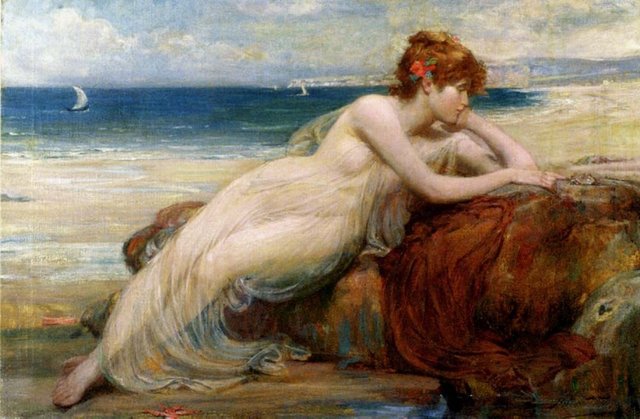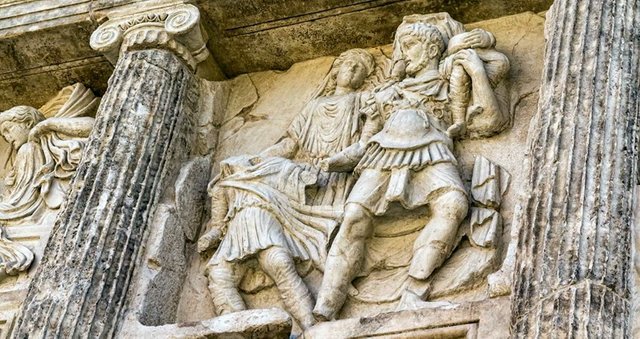The ancient city of Aphrodite, the goddess of love - Aphrodisias #11
These texts can historically better classify, taking into account the other testimonies of Jewish presence in Aphrodisias. It is almost exclusively Grati: short texts (prayers), but above all drawn Jewish symbols. They perform in several places in the city: in the town hall, in the Sebasteion and in the Agora. Place seats for the Hebraioi, their elders, and possibly a Jewish youth organization are placed in the seats of the Town Hall. The town hall was used in late antiquity, among other things, for displays and for the latter, these seats were reserved (fifth century AD).
In several places of the city Jewish Grati have been found. The twenty Grati are depictions of Jewish cult objects that adorned private homes and, above all, shops. After the interruption of the imperial cult in the early fourth century AD, the Sebasteion was occupied by merchants who set up shops between the columns of the north and south halls. Nine depictions of seven-arm candlesticks (Menoroth) have been registered on these pillars. One may assume that the shops marked in this way belonged to Jews. They promoted the portrayals of their own people; but non-Jews were also among their customers. The context leads to a dating in the second half of the fourth century.
The Jews and the sympathizers of Judaism represent a wide range of social positions and economic activities. During this time, the Jews appear self-confident: they bring signs of their presence and their faith on the walls of public buildings. For them seats are reserved in the city hall; three persons profess openly as proselytes; the pillared halls of the desecrated site of the imperial cult are occupied by Jewish traders; Nine members of the council regularly visit the synagogue. And all of this at a time when imperial legislation supported discrimination against Jews, banning conversion and excluding public service Jews. In Aphrodisias, the signs that speak of persecution and discrimination of the Jews come later.

